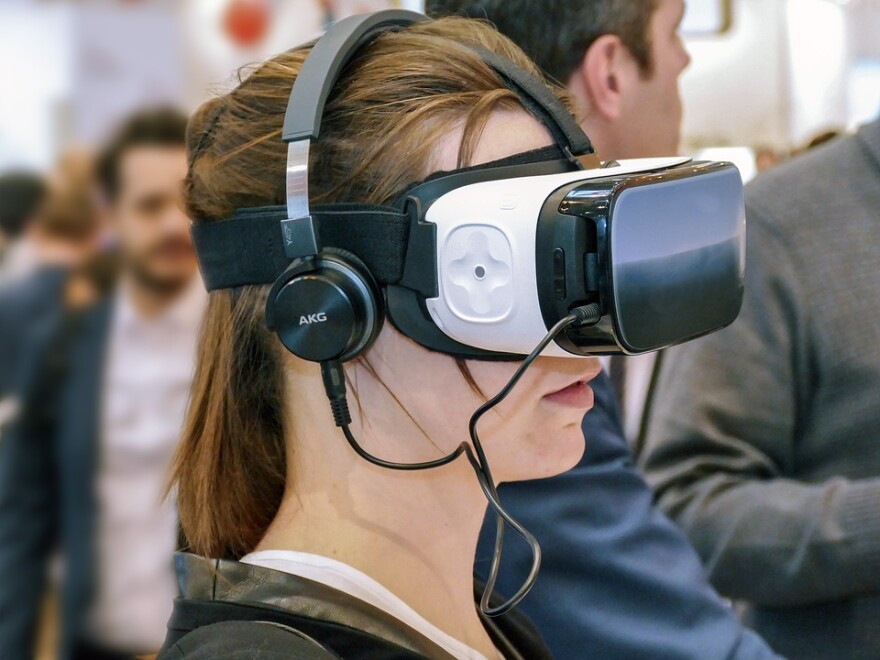With the opioid crisis continuing to ravage Ohio, the state issued a $10,000 challenge. Tuesday, five winners were announced, including Cincinnati's Kinematechs and a University of Dayton researcher.
After Governor John Kasich and Ohio Third Frontier put out the call, hundreds of people from nine countries submitted what the state is calling "bold and creative ideas that identify ways to accelerate solutions, including Yong Pei and Dr. David Martineau of Kinematechs.
Motion Tracking and Augmented Reality
Pei, a Wright State University associate professor, and Martineau, a hand surgeon, use motion tracking and augmented reality to customize a patient's rehabilitation. "We feel like this type of technology, the merging of motion analysis, the augmented reality and the therapeutic feedback can actually prevent the amount of pain medication you use, the duration of its use and then lessen the likelihood of addiction."
Pei says for many of these orthopedic patients, "Right now the only option for a patient is a pain killer."
Neurofeedback
The University of Dayton Research Institute recommended Kelly Cashion's research in neurofeedback. She was another winner. "Using neurofeedback, we'll work with our volunteers to help them learn to regulate activity in the part of their brain associated with cravings and rewire some of those pathways, allowing them to reduce their cravings and experience a more 'normal' state even without opioids," Cashion said.
The Ohio Opioid Technology Challenge is a multi-phase, multi-million dollar prize competition with escalating prize amounts with progressive levels of solution development.
-lEZSNU
The next phase of Ohio's Challenge asks for proposals from the business and innovation community to turn the ideas into solutions.
The other winners in the Idea Phase are:
- Judson Brewer (Worcester, Massachusetts) who proposed a digital therapeutic centered on the psychological theory of mindfulness, adapted from his nationally-known Craving to Quit program.
- Lee Barrus (Oren, Utah) and the team at InteraSolutions suggested an opioid risk assessment screening app to identify patients with risk factors for opioid abuse.
- The Education Project (Boston, Massachusetts) proposed a virtual reality technology focused on preventing addiction in teens and young adults.



